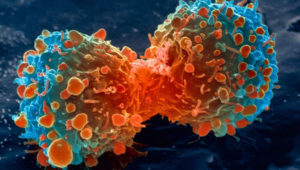 For those who need convincing that lifestyle can contribute to development of cancer or its prevention, new medical research has once again supported the importance of lifestyle choices. A report from Australian researchers (with similar findings as a study in the US) stated: an estimated 38% of cancer deaths and 33% of cancer diagnoses could have been prevented with healthy lifestyle choices.
For those who need convincing that lifestyle can contribute to development of cancer or its prevention, new medical research has once again supported the importance of lifestyle choices. A report from Australian researchers (with similar findings as a study in the US) stated: an estimated 38% of cancer deaths and 33% of cancer diagnoses could have been prevented with healthy lifestyle choices.
And what were the lifestyle choices that are linked to cancer? The researchers list 20 separate things (in 8 broad groups) that are known to cause or are linked to cancer. They are: tobacco smoke (smoking or second-hand smoke), dietary factors (low-intake of fruit, non-starchy vegetables, and dietary fiber; and high intake of red and processed meat), overweight/obesity, alcohol, physical inactivity, solar ultraviolet radiation, certain infections (they list 7 infections, such as human papillomavirus, hepatitis B, hepatitis C), and reproductive factors (lack of breastfeeding, menopausal hormone therapy use, combined oral contraceptive use). Note that they found that the #1 most important lifestyle factor is tobacco smoke - and it accounted for about 23% of all preventable cancer deaths in Australia. From Medscape:
One Third of Cancer Deaths Could Be Prevented by Lifestyle
As we head into the festive season, many are looking forward to the tradition of "Eat, drink, and be merry." But as another research paper shows that more than a third of cancer deaths could be prevented by lifestyle, maybe a qualifier should be added:"celebration in moderation." The latest statistics come from Australia, where researchers note that 44,004 cancer deaths occurred in 2013. But an estimated 38% of these deaths and 33% of cancer diagnoses could have been prevented with healthy lifestyle choices, says a research team led by Louise Wilson, MEpi, at the QIMR Berghofer Medical Research Institute and the University of Queensland, Brisbane.
These cancer diagnoses and deaths were seen in Australians of all ages and are directly attributable to 20 known modifiable risk factors within eight categories that are established causes of cancer, the study authors say. The report is published in the February 2018 issue of the International Journal of Cancer.
Smoking was the leading cause of preventable cancer death in Australia in 2013 and accounted for 23% of all cancer deaths. ...Three other categories of modifiable risk factors — poor diet, overweight/obesity, and infections — accounted for 5% of cancer deaths each. In a fifth category, alcohol-related cancer accounted for 2.4% of deaths. Physical inactivity factors were responsible for 0.8% of cancer deaths, overexposure to ultraviolet radiation for 3.2% of cancer deaths, and, in the eighth category, reproductive or hormonal factors were linked to 0.4% of cancer deaths.
In the diet category, risk factors include low intake of fruit, nonstarchy vegetables, and dietary fiber and high intake of red and processed meat. In the infection category, seven cancer-causing agents, including human papillomavirus (associated with cancer of the vulva, vagina, penis, anus, oral cavity, and oropharynx) and Helicobacter pylori (noncardia stomach cancer), are included. Lack of breastfeeding, use of menopausal hormone therapy, and use of combined oral contraceptive use (breast and cervical cancer) are listed as preventable risk factors in the reproductive category.
These findings are in keeping with other research on the role of modifiable lifestyle-related risk factors in cancer prevention. As previously reported by Medscape Medical News, results from a large cohort study in the United States led researchers to conclude that 20% to 40% of cancer cases and related mortality could be prevented by not smoking, maintaining a healthy weight, and exercising regularly. In another report, results from a national online survey undertaken by the American Society of Clinical Oncology showed that, like their Australian counterparts, most US adults don't know alcohol and obesity are major risk factors for cancer. [Original study.]
 A dividing lung cancer cell. Lung cancer is associated with smoking. Credit: National Institute of Health (NIH).
A dividing lung cancer cell. Lung cancer is associated with smoking. Credit: National Institute of Health (NIH).
